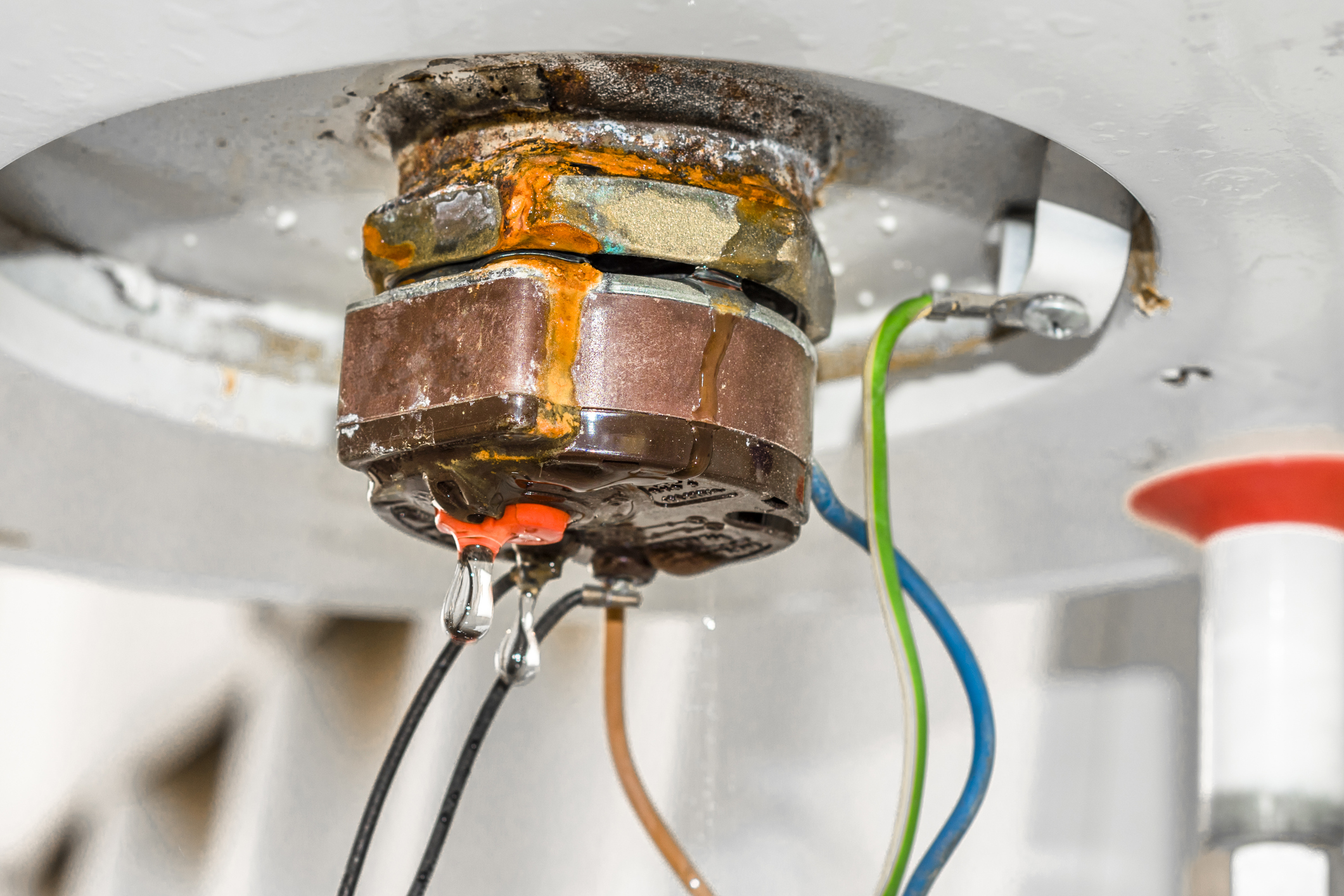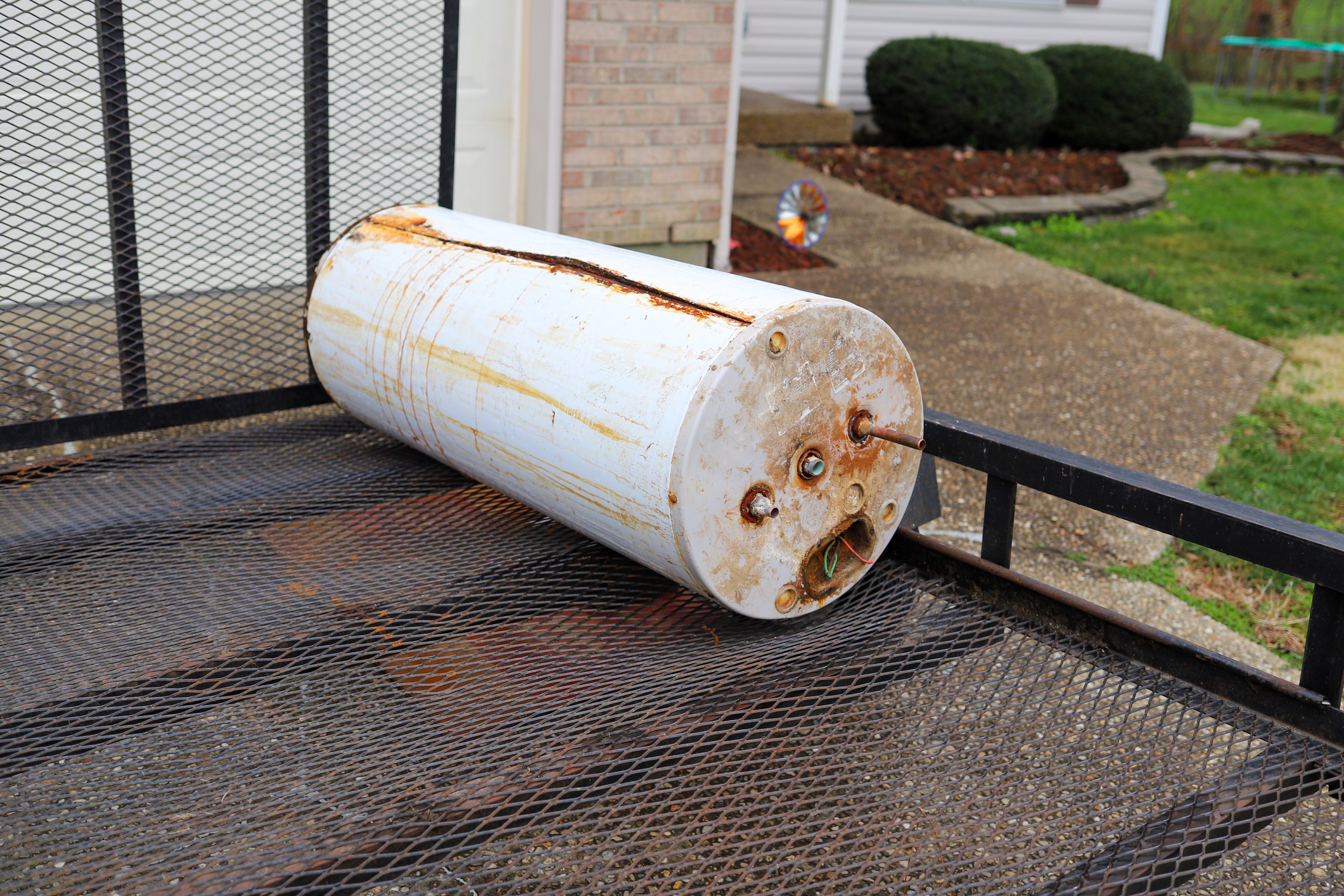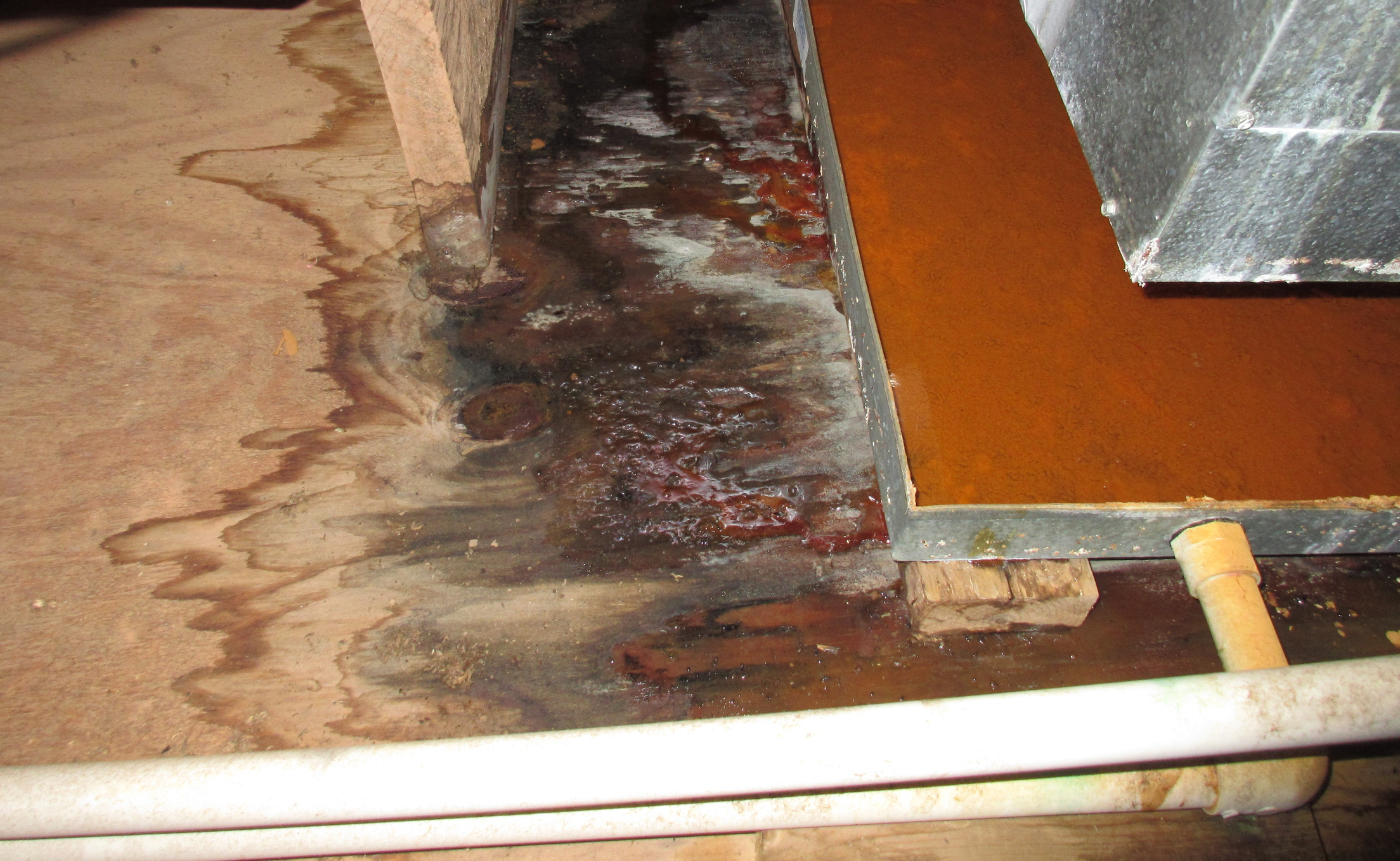Water Damage Services
Water Heater
Burst
When a water heater burst, it can cause significant disasters and disrupting your daily routine. Sometimes, this could happen because the pressure buildup inside the tank can cause it to rupture, resulting in a sudden release of a large volume of water. This can lead to flooding, ruined belongings, and costly repairs. Time is of the essence in such situations, as the water can seep into walls, floors, and furniture, causing further damage and even mold growth.
Do you know what to do if this happens to you? Understanding the risks and taking immediate action can help minimize the destruction caused by this unfortunate event.
We’ll walk you through the steps to take when dealing with a busted water heater, ensuring a swift and effective response to mitigate the impact on your home or your business property, and provide some tips for preventing future incidents.

A water heater that burst can be a major inconvenience and cause significant damage to your home. Not only can it leave you without hot water, but it can also lead to costly repairs and even potential health hazards. We will explain the typical reasons why water heaters burst, as well as offer remedies to stop and deal with the problem.
What Causes a Water Heater to Burst?
1. Age of the Water Heater
The age of a water heater is among the most frequent reasons for its rupture. Most water heaters have a lifespan of 8–12 years, and as they get older, they become more prone to leaks and bursts. If your water heater is approaching or has exceeded its expected lifespan, it may be time to consider replacing it.
2. Sediment Buildup
Over time, sediment can build up at the bottom of your water heater tank. This sediment can cause corrosion and weaken the tank, leading to a burst. Regularly flushing your water heater can help prevent sediment buildup and extend the life of your water heater.
3. High Water Pressure
If the water pressure in your home or your property is too high, it can put excess strain on your water heater, causing it to burst. You can check your water pressure with a pressure gauge and adjust it if necessary. The ideal water pressure for a home is between 40-60 psi.
4. Corrosion
Corrosion is another common cause of water heaters to burst. Over time, the metal in the tank can corrode, weakening the structure and causing it to burst. This is especially common in areas with hard water, as the minerals in the water can accelerate the corrosion process.
5. Faulty Temperature and Pressure Relief Valve
The temperature and pressure relief valve (T&P valve) is a safety feature on water heaters that releases excess pressure and temperature to prevent the tank from bursting. If this valve is faulty or not working correctly, it can cause the water heater to burst. It is essential to have your T&P valve checked regularly and replaced if necessary.

Water seeping out of the tank is the most noticeable indication that a water heater has ruptured. In some cases, you may hear a loud popping or banging noise coming from the tank before it bursts. If you notice any of these signs below, it is essential to call us at (720) 340-3499 immediately to prevent further water damage.
Some common signs include:
- Lack of hot water
- Water pooling around the water heater
- Strange noises coming from the water heater
- Rusty or discolored water
- A sudden increase in your water bill
Quick Fixes When Your Water Heater Burst
If your water heater has already burst, it is crucial to act quickly to minimize the damage. Here are some steps you can take below:
1. Turn Off the Water Supply
The first step in dealing with a burst water heater is to turn off the water supply. This will prevent more water from entering the tank and causing further damage. Locate the shut-off valve on the cold water supply line and turn it off.
2. Turn Off the Power
If you have an electric water heater, turn off the power at the circuit breaker. For gas water heaters, turn off the gas supply.
3. Drain the Tank
Next, you’ll need to drain the tank to relieve the pressure and prevent any more water from leaking. Attach a garden hose to the drain valve at the bottom of the tank and run it to a drain or outside. Open the valve and let the water drain out.
Once the power and water supply are turned off, you can drain the tank to prevent any more water from leaking. You can do this by attaching a hose to the drain valve at the bottom of the tank and draining the water into a nearby drain or outside.
4. Release Pressure
If the tank is still under pressure, you’ll need to release it before attempting any repairs. To do this, open the pressure relief valve on the top of the tank. This will release any built-up pressure and allow you to safely work on the tank.
5. Patch the Leak
If the leak is small, you may be able to patch it temporarily until you can get the tank replaced. You can use a patch kit specifically designed for water heaters or a rubber patch and hose clamps. Follow the instructions on the patch kit and make sure the area is completely dry before applying the patch.
6. Replace the Pressure Relief Valve
If the pressure relief valve is the source of the leak, you’ll need to replace it. This is a relatively simple fix that can be done with a few basic tools. Make sure to turn off the water supply and drain the tank before attempting this repair.
How to Prevent Future Incidents
While a busted water heater can be a stressful and unexpected event, there are some steps you can take to prevent it from happening again in the future.
The best way to deal with this is to prevent it from happening in the first place.
Here are some steps you can take to prevent a water heater to burst:

1. Regular Maintenance
The key to keeping a water heater from bursting is routine maintenance. This includes flushing the tank to remove sediment buildup, checking the pressure relief valve, and inspecting the tank for any signs of corrosion or damage. It’s recommended to have a professional perform maintenance at least once a year to check for any signs of wear and tear and make any necessary repairs.
2. Flush the Tank
As mentioned earlier, sediment buildup can cause a water heater to burst. Flushing the tank once a year can help prevent this issue. You can do this by attaching a hose to the drain valve and draining the tank until the water runs clear.
3. Lower the Temperature
As mentioned earlier, high temperatures can cause the water to expand and put pressure on the tank. Lowering the temperature to 120 degrees Fahrenheit can help prevent this from happening.
4. Check the Pressure Relief Valve
It is essential to have your T&P valve checked regularly to ensure it is working correctly. If it is not functioning correctly, it can cause the water heater to burst. A professional plumber can test the valve and replace it if necessary.
5. Monitor Water Pressure
As mentioned earlier, high water pressure can put excess strain on your water heater, leading to a burst. It is essential to monitor your water pressure and adjust it if necessary. You can do this with a pressure gauge, which can be purchased at most hardware stores.
6. Replace Old Tanks
If your water heater is over 10 years old, it may be time to replace it. Older tanks are more prone to corrosion and damage, making them more likely to burst. Consider replacing your water heater before it becomes a problem.
If your water heater is approaching or has exceeded its expected lifespan, it may be time to consider replacing it. This can help prevent a burst and save you from costly repairs in the long run.
6. Install an Expansion Tank
An expansion tank can help relieve pressure on the tank and prevent it from bursting. This is especially important if you have a closed plumbing system, where water has nowhere to go when it expands.
Call Revive Restoration Today!
It is stressful when your water heater burst and inconvenient situation, but with these quick fixes and preventative measures, you can minimize the damage and prevent future incidents.
If the leak is large, or you’re not comfortable attempting any repairs yourself, it’s best to call us at (720) 340-3499. At Revive Restoration, we will be able to assess the water damage and determine the best course of action for repairing or replacing your water heater.

